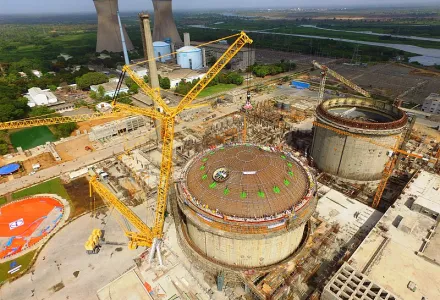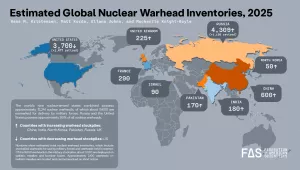Speaker: Aditi Verma, Stanton Nuclear Security Postdoctoral Fellow, International Security Program/Project on Managing the Atom
The design and creation of complex socio-technical systems require the production and use of both tacit and explicit knowledge. This seminar explores the role of tacit knowledge in the transfer and reinvention of complex, dual-use technologies — in this case, pressurized heavy water reactors — and the implications of the generation of this tacit knowledge for technology control.
The Indian nuclear program, while building the second reactor of a two-unit pressurized heavy water nuclear plant of Canadian design, found itself excluded from global nuclear supply chains and confronted with the task of completing a half-finished reactor following its nuclear test in 1974. This talk, based on interviews with reactor equipment manufacturing companies and oral histories of current and former nuclear scientists, engineers, and policymakers of the Indian nuclear program, traces the story of how Indian scientists, engineers, and technicians completed the half-finished reactor and redesigned and built subsequent ones.
The Indian case suggests that for suppliers of complex technologies, guarding access to the supply chain is unlikely to be an effective mechanism for commercial and strategic control. Knowledge of the design and functioning of complex systems is primarily held tacitly, deep and diffused in their supply chains. Only some of this knowledge is contained within the formal written specification of the systems. This leads to the expectation that as a technology becomes more tacit, the ease with which it can be transferred ought to decrease. However, the development of nuclear reactor technology in India reveals a paradox. The diffusion of knowledge, much of it tacit, in the supply chain, when access is open, complicates the technology transfer. But when access is verboten, the diffused nature of the knowledge makes it harder to contain.
Everyone is welcome to join us via Zoom! Please register before the event:
https://harvard.zoom.us/meeting/register/tJYucOGgpj4iG9ChfkgqbBwsu3OKLDyJ6Uwh



